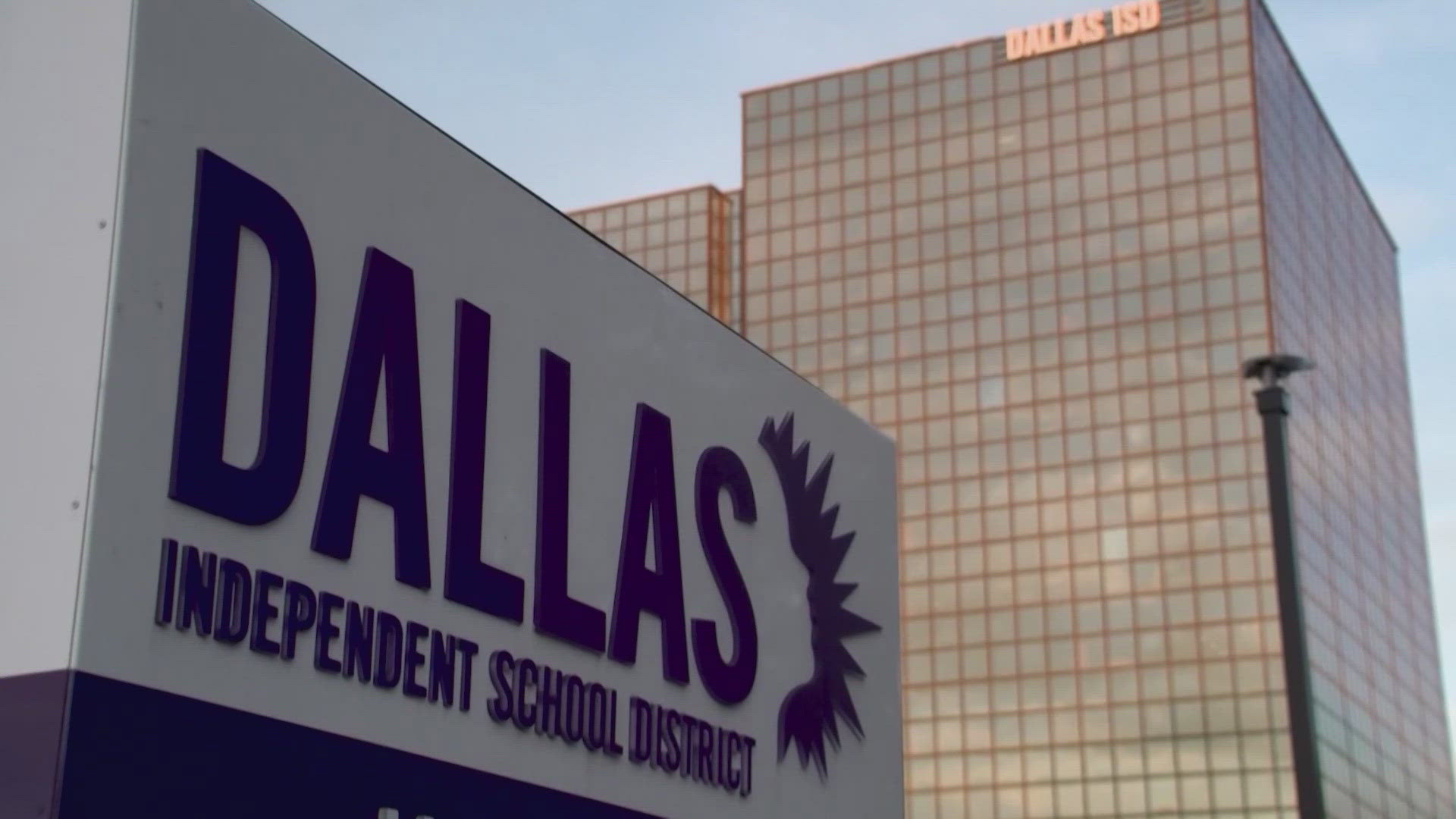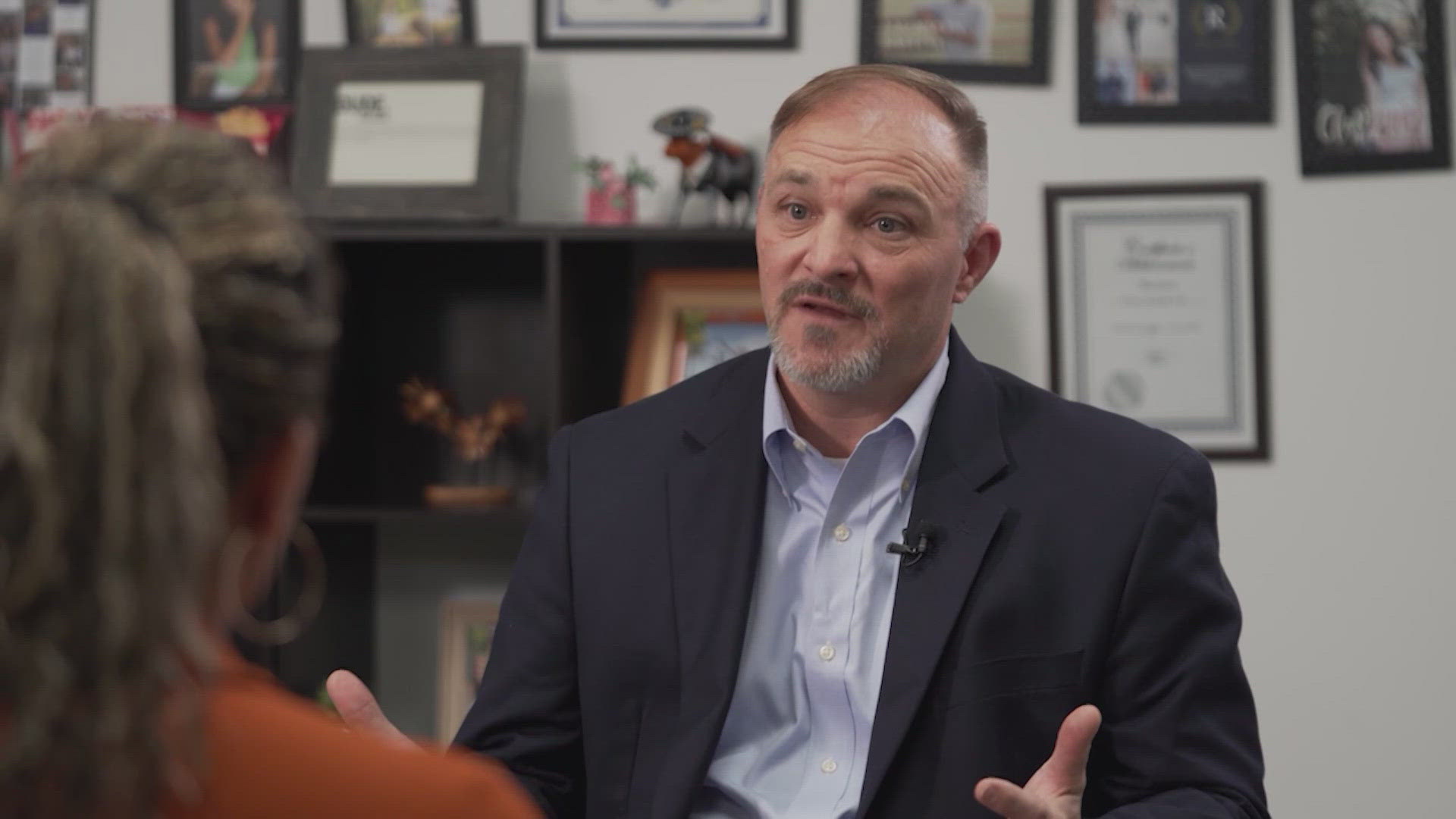North Texas school districts are stretching financially for the 2024-25 school year
The basic allotment for K-12 students in Texas is $6,160 and it has not increased since 2019, forcing North Texas schools to make tough choices for students.

The basic budget allotment for K-12 students in Texas is $6,160 per student.
That’s the legislatively mandated amount of money from the general revenue funds that go to each public school district to provide a basic level of education for the district’s residents. The allotment has not increased since 2019, despite substantial inflation since then.
This is forcing districts across North Texas to make changes to staffing, class sizes and program offerings. Some districts have supported bonds or a voter-approved tax rate election (VATRE) to cover the shortfall.
In a new WFAA series, we are highlighting urban, suburban and rural school districts in the DFW metroplex and sharing how they’re confronting funding challenges, working toward the best outcome for students and communities.
Part of our reporting includes a robust survey of 52 school districts across the more than 30 counties in North Texas, designed to paint a comprehensive picture of what’s happening financially and how it’s affecting schools local children are attending.
Chapter 1 Being one of the best with much less: how DISD's Irma Lerma Rangel is beating academic odds with fewer dollars to do it
One of the highest-rated schools in North Texas is in the district with the biggest budget deficit WFAA found for the 2024-2025 school year: Irma Lerma Rangel Young Women’s Leadership School in the Dallas Independent School District.
“We are a college prep program," chemistry teacher Emily Schick, a teacher for 19 years, explained. "We have all advanced classes. Middle school we have honors courses. High school, they’re taking AP courses.”
U.S. News & World Report says Irma Lerma Rangel ranks No. 23 in the country, with an overall score of 99.87 out of 100 in its coveted “Best High Schools” list.
“I think what makes it special is we have a fundamental belief in our girls," Principal Yvonne Rojas said.
If you walk the hallways, ceiling tiles are painted with the colleges and universities its graduates have attended from Ivy League schools to some of the best in the state of Texas.
Thuan Do, a history teacher who has spent nearly 25 years in the classroom, says inside this school, “The kids are great. They work so hard and they’re so dedicated.”
The challenge here, like so many others across the area, is funding.
“The challenge is real, as they say, with regard to funding,” Dallas ISD Superintendent, Stephanie Elizalde told us. “We’re looking at about a $186 million deficit which for many school districts - I see your face - is larger than entire budgets of some school districts.”
Naturally, it was a bit shocking for our team to hear the amount of the shortfall. Thankfully, Elizalde told WFAA, the previous district leadership and board had been preparing for this. DISD has enough money in reserves to cover the deficit this school year.
But when it comes to the extras, teachers are picking up the tab.
“We have different labs throughout the year so, I purchase supplies for those labs,” Schick shared.
She’s not the only one spending personal funds for students to have experiences in the classroom and outside of it.
“I spent, probably, an additional $8,000 last year," Do said.
When WFAA asked why, she replied, “Because I grew up not having these things."
"We had a field trip we were supposed to go to last year to a Doritos or a chip factory and it would’ve been great for them to see that when we talk about how mass production works," Do said.
Now, the dedicated team at Irma Rangel is focused on the resources they do have and building each other up to support students.
“No one wants to follow someone who’s just going to whine about things that we don’t have control over," Elizalde said. "One thing we do have control over is maybe not the outside weather but, we can control our inside weather. What isn’t fair is that we shouldn’t be in this situation at all.”
Dig into the data
Chapter 2 Northwest ISD pleading with taxpayers to pitch in more as costs increase
Northwest Independent School District is the fastest-growing district in North Texas.
“20 years ago, there were north of 6,000 students in Northwest ISD," Superintendent Mark Foust told WFAA. "As of 2023-2024, we ended with 31,000 students. So, in that short period of time, we multiplied, and we are projecting to grow by about 1,200 students a year and continue that pace. We’ll reach 40,000 students in just a few years.”
In 2023, a $2 billion bond was passed to cover the next 8,400 students. From what the district shares, growth is not its challenge, funding is.
“We have experienced historical inflation, historic inflation since 2019," Foust said. "About 20 percent inflation is what you calculate over that time but the basic allotment, which is the core funding source for students for public school district budgets, it hasn’t increased since 2019."
For the 2024-2025 school year, Northwest ISD is adopting a $15 million deficit budget. It did the same last year.
The district is proud of its career and technology education programs. Without additional funds, those will be under consideration for tighter budgets. Athletics could lose smaller sports or assistant coaching positions altogether. Theater at Byron Nelson High School, a crown jewel of Northwest ISD, could go from two teachers to one.
Wendy Bramlett, theater director at Byron Nelson, emphasized, “Theatre, band, art, choir -- that’s where they go and you see them come alive and we provide the stimulus of, ‘Dude, you got to do your homework too.’”
When asked to think about a world where she has to make cuts to the program, Bramlett replied, “It makes me sad because nobody wins. Everybody loses.”
This is where a voter-approved tax rate election (VATRE) comes in.
At its August board meeting, Northwest ISD is presenting data to its board in support of putting a 3-cent increase to voters. If approved, the VATRE would generate about $15 million to address the shortfall this school year.
When asked why take this to taxpayers, Foust responded, “$4 billion was approved in the budget in both the Senate and the House last legislative session. The governor said that he wanted to hold that $4 billion as a carrot for vouchers to pass.”
“I never thought 20 years in I would feel like a political pawn,” Bramlett reflected. “That’s a really rotten place for educators to be in. To feel like we’re at the whim of whatever the political climate is because educating kids should come first, no matter what.”
On August 13, Northwest ISD will present its data to the board with an option to call for the VATRE. Foust says they are not the only district in need of a VATRE to balance their budgets.
“They’re sitting on a more than $30 billion surplus this budget cycle," Bramlett said about the state. "We’re just wondering, why is it that public schools in Texas are struggling? Why are there so many deficit budgets across this state? Why are so many districts choosing to go out for a VATRE election for pennies that aren’t subject to recapture so they can support their budgets and support their staff and student programs?”
Chapter 3 Small districts, like Fairfield ISD, also facing big deficits this school year
Fairfield Independent School District is the hub of its small community in Freestone County.
Like so many in our area, this school district is battling a budget deficit of more than $300,000 for the 2024-2025 school year and pushing to retain its programs.
Sonya Gibson, principal at Fairfield High School, is the sixth generation of her family to call Fairfield home. The town has a population of just 2,901 and a school district that serves 1,800 students.
“We’re all struggling right now," Gibson said. "The difference is we have a community that rallies behind us. We have a school board that says 'Hey, let’s figure out how to make this happen for our students.'”
When asked how that makes her feel, Gibson replied, “That feels awesome. It takes a little bit of burden off of me. I really wish we could have the support of our governor and things of that nature.”
Joe Craig, who came to Fairfield ISD as superintendent in January, told WFAA that other districts in small towns and rural areas are in a similar position.
“Historically, we’ve done really well and done a great job over the past few years of being financially prudent and saving up for those rainy days," Craig said. "Well, it’s storming pretty good right now in the State of Texas."
It’s often tough hiring in a district like Fairfield, which is nestled between Dallas and Waco. However, right now, the high school is fully staffed with 58 employees. One of them, Nicole Crawford, has been a math teacher at the high school for 17 years.
“I could easily go and make more money but the class size, the community, the kids. I love these kids, and I just love them,” Crawford explained.
The Eagles are proud of their programs, particularly those in the career and technical education area.
Craig said the school district has successfully been able to change the narrative of "you have to go to college." Last year, Fairfield ISD added a cosmetology program and the first class of students will graduate next spring.
Students are gaining certifications before graduation. However, that could come to a standstill and there could be fewer teachers if more state funding doesn’t come soon.
If there was anything Crawford would want state lawmakers to know, it would be that “there’s value in what we’re doing."
They’re optimistic that relief is coming to Fairfield.
“I think they’re going to make the right decision," Craig said. "I believe that in my heart.”


